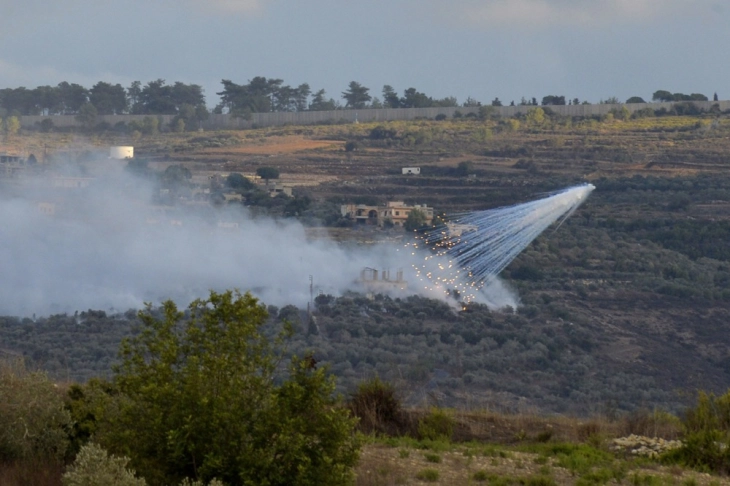Massive exchanges of fire across Israel-Lebanon border
- Israeli forces and the pro-Iranian militia Hezbollah have engaged in massive exchanges of fire across the border between Israel and Lebanon, heightening fears of a wider escalation of the conflict in the region.

Beirut/Tel Aviv, 25 August 2024 (dpa/MIA) - Israeli forces and the pro-Iranian militia Hezbollah have engaged in massive exchanges of fire across the border between Israel and Lebanon, heightening fears of a wider escalation of the conflict in the region.
Hezbollah said it had fired hundreds of rockets at Israel on Sunday in retaliation for the killing of one of its commanders in Beirut, as Israel said it carried out dozens of pre-emptive airstrikes in southern Lebanon.
Hezbollah said more than 320 rockets had been fired at Israeli military bases. "Our military operation for today has been completed, thanks to God Almighty," the Islamist group said.
Since the war in the Gaza Strip began last year, there have been daily military confrontations between the Israeli army and Hezbollah, with Hezbollah expressing solidarity with the Palestinians in Gaza.
Israel has been bracing itself for a larger attack following the killing of Hezbollah military commander Fuad Shukr in Beirut on July 30.
On Sunday, Israel's military said it had pre-emptively attacked targets in southern Lebanon, where witnesses said they heard hundreds of explosions.
The Israel Defence Forces (IDF) said "approximately 100 fighter jets, directed by IDF intelligence, struck and destroyed thousands of Hezbollah rocket launcher barrels that were located and embedded in southern Lebanon."
Prime Minister Benjamin Netanyahu said a wide-scale attack on Israel had been thwarted by the army's actions.
Israeli Defence Minister Yoav Gallant earlier declared a 48-hour state of emergency across Israel, in response to what he said was an escalating security threat.
Army spokesman Daniel Hagari said the military had carried out airstrikes "in a self-defence act to remove these threats."
Media reports said that flights had been briefly diverted from Israel's international Ben Gurion airport due to the heightened security situation.
The airport returned to normal service on Sunday at 7 am (0400 GMT), the army said.
Israeli civilians could move freely around the area from Tel Aviv up to the northern border with Lebanon if they wished, and go to work, and children could go to school, the army said. But they could only do this if they were near a secure shelter.
Lebanese security sources said Israel had attacked at least 40 targets in southern Lebanon. After more than an hour of bombardment, the situation seemed to have calmed down, they added.
Two people were wounded in the Israeli strikes, and a drone strike killed one other person, the Lebanese Health Ministry said.
US President Joe Biden - a key ally of Israel - was aware of the developments and was in contact with his national security team, according to a spokesman.
"We will keep supporting Israel’s right to defend itself, and we will keep working for regional stability," the National Security Council spokesman said in a statement.
MIA file photo







